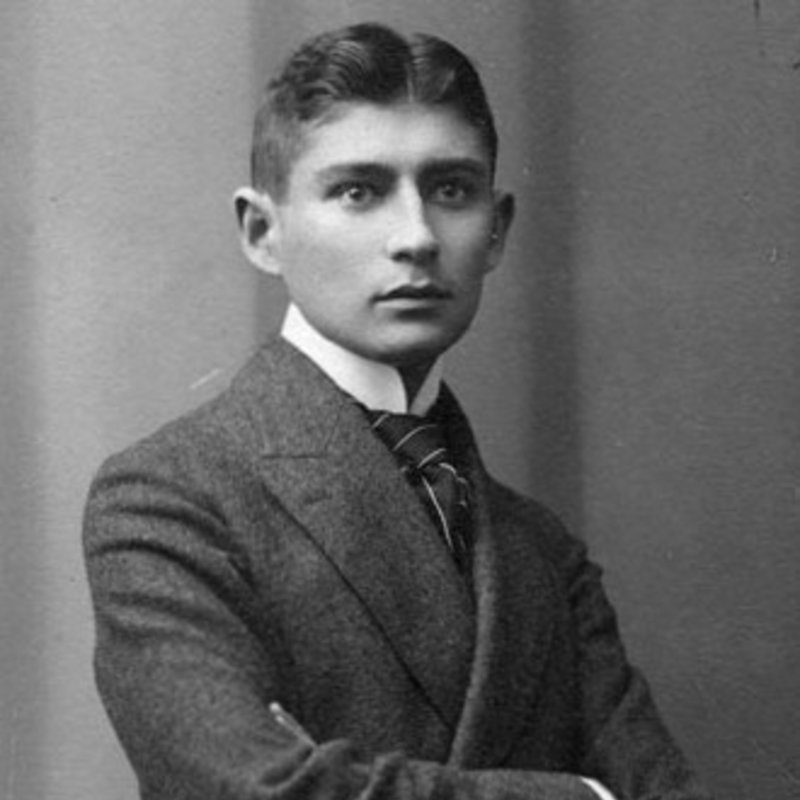Metamorphosis (1915)
Episode #2 of the course Masterpieces of world literature and why they matter by Alisa Miller
While yesterday’s work focused heavily on society and how it drives people, our second lesson will move a little closer to home in a study of a man transformed and the impacts on his family in Metamorphosis by Franz Kafka.
Big Changes
Metamorphosis opens with the main character, Gregor Samsa, awakening in the morning and realizing he has turned into a giant bug. (Note that there is much debate over the original German word that describes what Gregor has become, and it is sometimes translated as “bug,” “insect,” or “vermin.”) He soon realizes he has overslept for work and begins fretting over both getting to work and his employer’s reaction to his lateness, despite the more obvious concern that he is no longer human. Eventually, his mother, father, and sister realize he hasn’t left the house, and the manager from his work arrives to find out what is wrong. Gregor, a traveling salesman, has locked his bedroom door out of habit, with the result that no one can get in to check on him. After much effort, Gregor finally is able to unlock the door, revealing his transformation to his family and his boss.
The story unfolds with Gregor living in his bedroom, and his sister, Grete, bringing him food and cleaning his room. Grete does these chores initially with compassion yet barely covering her disgust and eventually, with little care at all for Gregor. The family—who, it is revealed, was living solely on Gregor’s earnings—must learn how to care for themselves. The family eliminates all their household help and hires just one cleaning woman, and each family member gets a job. As the family becomes more independent, Gregor becomes less well. In the end, Gregor dies after he has quit eating. Upon his death, the family realizes the benefit of their independence. As they take the day off work and revel in their newfound freedom, the parents realize Grete has herself changed into a lovely young woman who is ready for marriage.
What Can It Mean?
Franz Kafka grew up in Prague in a German-speaking family. He was the eldest child and the only surviving son. Franz and his father, Hermann Kafka, had an infamously damaged relationship, which began with Hermann’s disappointment that Franz was not less sensitive and more masculine. Some people like to attribute the relationship between Franz and Hermann as a key to understanding the strange tale of Metamorphosis, in which the character of the father treats Gregor with anger and physical abuse. However, others feel that there is more depth to the story.
The themes of change—within Gregor, as well as the entire family—and isolation provide more thought-provoking opportunities for understanding Metamorphosis. Besides the obvious change of Gregor from human to something else, there is also the change of Gregor from the sole provider to the only member of the family not contributing financially. The family transforms from a group of idle hangers-on to individuals with jobs and blossoming lives of their own. Grete changes from a girl to a young woman ripe for marriage.
The theme of isolation itself even undergoes a change. Gregor, as a traveling salesman, is often away from home, writing letters to his sister in order to communicate and understand the family life from which he is distanced. Once he is physically transformed, Gregor remains isolated from the family, but now within his own room and by his family’s choice.
Impact
During his life, Kafka was relatively unknown as a writer. After his death, however, his friend disobeyed Kafka’s wishes that his writing be burned and instead published his works. After the publication of Kafka’s writing, his popularity rose quickly. The unusual nature of Metamorphosis inspired and intrigued, yet it also spoke to many common human experiences. Feeling isolated, family problems, hating one’s job, and financial struggles are topics most can understand. When Kafka presented these themes in the framework of such a strange transformation and added elements of humor and compassion, he touched the hearts of people around the world.
Tomorrow, we will take a look at another work originally written in German, as we examine Siddhartha by Hermann Hesse, which details a man’s search for enlightenment.
Recommended book
Metamorphosis by Franz Kafka (or free ebook version)
Share with friends

